This website uses cookies so that we can provide you with the best user experience possible. Cookie information is stored in your browser and performs functions such as recognising you when you return to our website and helping our team to understand which sections of the website you find most interesting and useful.
Zaporizhzhia Territorial Community

The Zaporizhzhia urban territorial community is located in the Zaporizhzhia district of the Zaporizhzhia region. The administrative center is the city of Zaporizhzhia. It is the country’s sixth largest city in terms of population.
It is located on the main waterway of Ukraine – the Dnipro River. In the south, the coast is washed by the Sea of Azov, whose coastline within the region exceeds 300 km.
The Zaporizhzhia city territorial community was formed on June 12, 2020.
The area of the community is 278.01 km²
The community consists of one population center – the city of Zaporizhzhia – which is divided into 7 administrative districts.
As of August 1, 2020, the population of the community was 710,052 people.
Women: 386,113
Men: 333,482
More than 230,000 internally displaced persons reside in the community.
History
People left their first traces on the territory of the future city of Zaporizhzhia 4 thousand years BC. Since those times, there have been many different tribes, peoples, cultures and civilizations on the banks of the Dnipro.
For many thousands of years, life was concentrated mainly on the island of Khortytsia, the largest river island in Ukraine. It was here that the tribes of the Bronze Age left unique buildings – sanctuaries-observatories, and the Scythian tribes left mysterious mounds and unique art in the animal style.
One of the brightest periods in the history of the area of the city of Zaporizhzhia was the Cossack era. In 1553, on the small island of Mala Khortytsia, Prince Dmytro “Baida” Vyshnevetskyi built a fortress, which historians consider the prototype of Zaporozhian Sich. Despite the fact that the fortress existed for only four years, its significance for the history of the whole of Ukraine was extreme. It became a real symbol of the uncompromising struggle of Ukrainians for their freedom, honor and dignity.
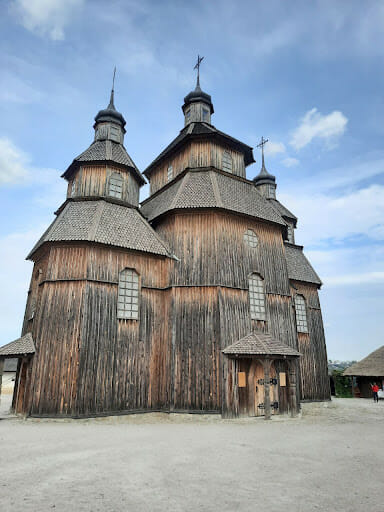

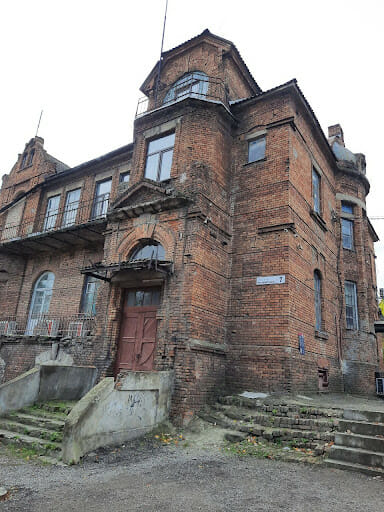
The Mennonites left behind a huge legacy – powerful enterprises and unique architecture, which attracts many tourists to Zaporizhzhia today.
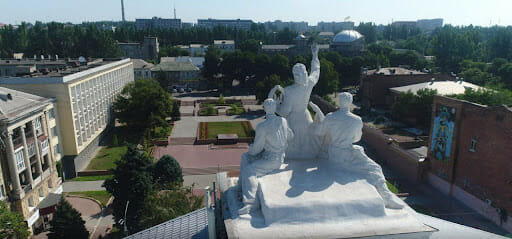
During the last centuries, the banks of the Dnipro around Khortytsia were overgrown with neighborhoods; they acquired the first industrial enterprises and roads, railway tracks, water supply, sewage and power lines. And in 1932, the first electric energy went through these wires from then Europe’s largest hydroelectric power plant – Dniproges. Next to the energy giant, the construction of a powerful industrial complex and a modernist city of the future began.
The Revolution of Dignity became a key event in the history of the city and the country in recent years. In 2013-2014, about 10,000 demonstrators gathered in Zaporizhzhia Maidans. In 2014, the Russian-Ukrainian war began, which significantly affected the city and its residents.
Economy and Welfare
Zaporizhzhia is located on the main waterway of Ukraine — the Dnipro River, at its intersection with transport and communication corridors.
Zaporizhzhia is an industrial capital, where there are many factories. Unfortunately some of them are closed for various reasons, and some were destroyed as a result of Russian aggression.
Today, there are two country’s large and important enterprises here: the motor-building plant Motor Sich and metallurgical plants of the Metinvest group: Zaporizhstal, ZaporizhKoksoKhim and Zaporizhvognetriv. Their important elements are often subjected to Russian strikes.
The company Motor Sich is one of the world’s leading corporations in the development, production, repair and service of aviation gas turbine engines for airplanes and helicopters, as well as industrial gas turbine installations.
As of 2010, Motor Sich manufactured and supported the operation of 55 types and modifications of engines for 61 types of airplanes and helicopters.
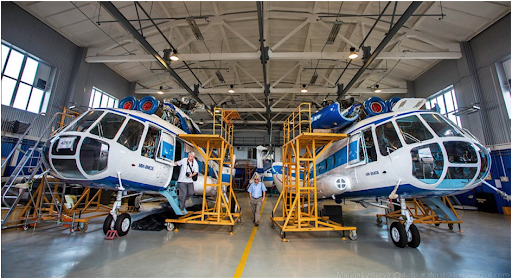
The enterprise Zaporizhstal is one of the leading enterprises in the metallurgical industry. It is Ukraine’s third largest manufacturer of metal products, where almost 11% of iron and steel is produced. In four blast furnaces, the plant melts 2.6 million tons of cast iron annually. The company supplies products to more than 50 countries of the world.
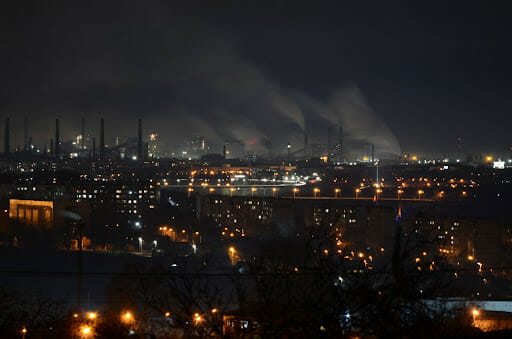
In the Zaporizhzhia community, the field of education works effectively, as a large part of the funds from the community budget is allocated to this sphere. There are 148 kindergartens and schools in the community, including 5 private and 8 higher educational institutions.
Zaporizhzhia children receive aesthetic education in 8 music schools, 4 art schools and a children’s art school.

Zaporizhzhia lives a rich cultural life. There are six theaters in the city. 37 city public libraries, cinemas, palaces of culture, museums are also functioning here.
Zaporizhzhia is a sports place that is proud of its champions. Zaporizhzhia athletes participate and win awards at European and world competitions, represent the country at the Olympic Games. The city prepares strong athletes, handball players, and Greco-Roman wrestlers.
The Zaporizhzhya community cares about the health of the population. There are 12 hospitals, 8 polyclinics and numerous private medical institutions.
Community and War
At the beginning of the war, many volunteer humanitarian headquarters functioned in the city of Zaporizhzhia. The largest were the Humanitarian Headquarters in the regional youth center with the public organization SVOI and Palyanytsia. New temporarily internally displaced persons were met at the headquarters in the city circus, Metro and Epicenter shopping centers and the Cossack Palace exhibition center. In each district, there were volunteer points where they provided assistance to internally displaced persons.
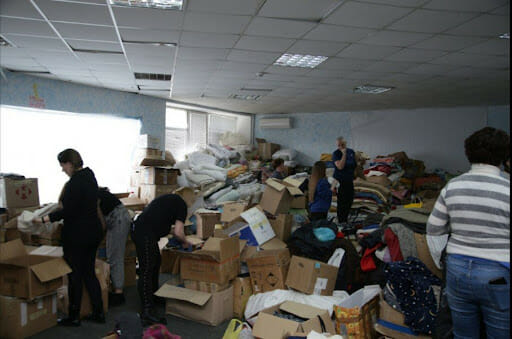
Well-known food companies, whose branches were in the city, gave their supplies to humanitarian headquarters. The city’s office premises turned into shelters or volunteer headquarters. Universities gave free rooms to internally displaced persons, and provided them with humanitarian aid in their classrooms.
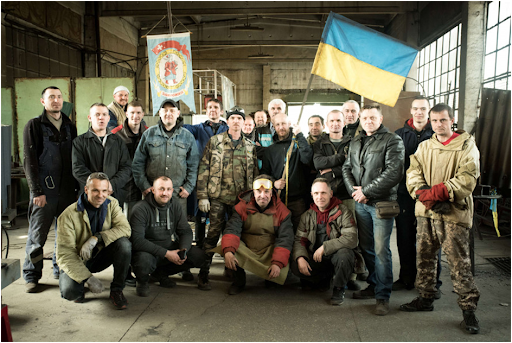
A few months after the Russian invasion of Ukraine, Zaporizhzhia, which turned from a regional center near the semi-occupied Donbas into a regional center that is 70% occupied, slowly began to enter a new rut of its life. Some structures, organizations and foundations of the city resumed their work, however with certain adjustments, while others continued to help the military and victims.
A Community Center for Internally Displaced Persons has opened on the site of one of the volunteer headquarters, which includes a gallery, a media center and a co-working space. It is a launching pad for everyone who wants to develop their business.
In addition to the Community Center, other projects and organizations have appeared in the city, such as “Darling, I’m alive”, micro-media “How are you there?” All these platforms have been created for moral support of citizens in difficult times.

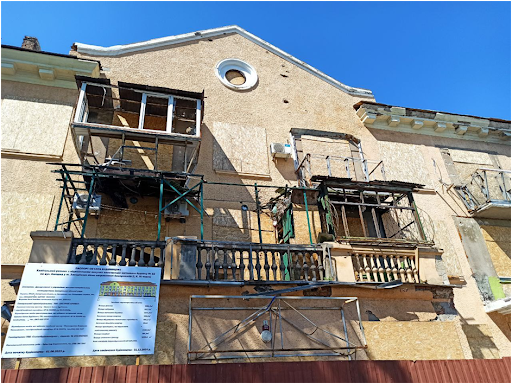
Despite the shelling, people are returning here, internally displaced persons are staying, and businesses are trying to operate again. Some residents lost their homes as a result of direct hits of their apartments.

People of the community
Anatolii Kurtiev is the acting chairman of the Zaporizhzhia City Council.

Before the war, the community initiated and organized many educational projects against violence, artistic initiatives, volunteer projects, environmental projects, and others. Various public organizations functioned in the city, which were engaged in informal education and career guidance of teenagers, environmental issues, advocacy and management training, protection of human rights in various areas. Communities (Polish, Jewish) helped the victims.
City, regional and national forums and festivals were held in the city, the most famous annual events are: It-Forum, Eco-forum, music festival Khortytsia Freedom, cozy festival Circle of Friends where all public organizations of the city gathered together.
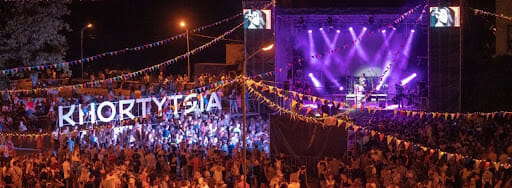
After the start of the full-scale invasion, many organizations temporarily stopped their activities or changed their focus to meet the needs of wartime. Some helped and are helping the military, some helped internally displaced persons, some built anti-tank defenses of the city or engaged in several fields of work at the same time.

Development Strategy
The existing strategy of the city lost its relevance due to the war and other factors.
Today, the public and the municipality of the city want to create a new modern strategy for today’s Zaporizhzhia, which lives the life of a regional center close to hostilities and the front line, which is located near the occupied ZNPP. However, it still wants to develop and become a comfortable city that has potential; strong Zaporizhzhia, which, despite the nightly shelling, conducts a workshop on tactical urbanism, because all representatives of the authorities understand why it is important not to forget about the architectural component and develop it, especially at such a time, to attract internally displaced persons who made a conscious choice to stay in Zaporizhzhia and save a city with great potential.
Soldiers come to the community from shelling and heavy fighting every day to touch peaceful life at least a little.
The city of Zaporizhzhia needs help and support in regulating the city’s work processes in new existing current conditions.
List of Sources
- Wikipedia article about the city of Zaporizhzhia
- Official website of the Zaporizhzhia City Council –
- Article entitled “The Best Places and Sights of the City of Zaporizhzhia”
- Article on the website “Darling, I’m alive”
- Anatolii Kuriev’s official page
- Article about Khortytsia Freedom on the website
- svoi.space/
- Photos from the website
- Information about the history of the city – Mykhailo Mordovskyi
